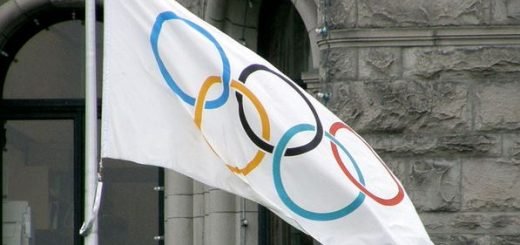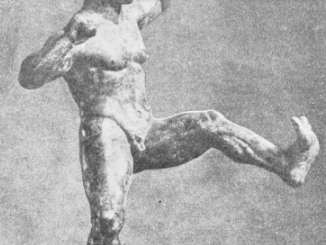Michael Schumacher – Fast Facts and Timeline

Michael Schumacher: Timeline and Facts
In addition to etching his name down in the annals of history by becoming the first German racing driver to win the Formula One Championship in 1994, Michael Schumacher went on to become the most decorated racing driver to grace the sport. Over a career that spanned about two decades, Shumi, as he is popularly called, won a record-breaking seven F1 championship titles. Worldhistoryedu.com explores the major events and crucial facts about the life and phenomenal Formula 1 career of Michael Schumacher.
Fast Facts: Michael Schumacher
Date of Birth: January 3, 1969
Place of Birth: Hürth, North Rhine-Westphalia, Germany
Father: Rolf Schumacher
Mother: Elisabeth
Siblings: Ralf Schumacher, Sebastian Stahl (step brother)
Spouse: Corinna Betsch (married in August 1995)
Children: Gina-Marie and Mick
Most Known For: Wining F1 Championship on seven occasions
Notable accomplishments: Revolutionizing motorsport; 5 consecutive Formula 1 World Championships (2000-2004); 91 Grand Prix wins; 77 fastest laps finishes; Most races won in a single season – 13; First German to win the World Drivers’ Championship (in 1994)
Nicknames: “Regenmeister” (rain master); “the Red Baron”, “Schumi”, “Schuey”, “Schu”
Timeline
1969: Born at a place called Hürth in North Rhine-Westphalia, Germany
1973: Around the age of four, he receives a pedal kart from his father
1975: Wins his first youth club championship; he was only six
1981: Travels to Luxembourg to obtain a kart license
1983: Secures his kart license in Germany
1984: wins the German Junior Kart Championship
1985: Signs for Adolf Neubert, an Eurokart dealer
1987: Claims the top prizes in both Germany and Europe at the kart championship level; he also drops out of school that same year to become a mechanic
1988: Takes part in a number of racing events, including the Formula König series where he emerges the winner
1989: At just the age of 20, he signs with WTS Formula Three team, which is managed by Willi Weber
1990: Claims the first spots at the German Formula 3 series and the Macau Grand Prix
1990: Becomes a member of the Mercedes junior racing team during the World Sports-Prototype Championship
1990: Placed fifth in the championship after winning the season finale at the Autódromo Hermanos Rodríguez in a Sauber–Mercedes C11
1991: Competes and finishes second in one at the Japanese Formula 3000 Championship
1992: Finished third at the Mexican Grand Prix
1992: Came third in the Drivers’ Championship; he pulled 53 points – three points more than second-place finish Ricardo Patrese
1993: Gets nine podium finishes in the Portuguese Grand Prix
1994: Enters his first Drivers’ Championship and goes on to win six out of seven races at the Spanish Grand Prix

The Benetton B194 – the car that Schumacher drove in the year that he won his first World Championship (1994)
July, 1994: Gets a two-race ban for an offense related to wrongful overtaking on the formation lap
November 1994: Wins the Championship (the first German to do so) even though he collides with another driver (Damon Hill), which forces both drivers to retire
1995: Retains his championship medal at the FIA Formula One Championship; he secures 33 more points than the runner up, Damon Hill
1996: Joins Ferrari for two years, receiving a salary of $60 million
1996: Places second at the Constructors’ Championship; that same year, he also finished third in the Drivers’ Championship
1997: After an unsportsmanlike behavior at the final grand Grand Prix on October 26 1997 at the Circuito Permanente de Jerez, Spain, Schumacher was disqualified; that year, Jacques Villeneuve won the Drivers’ Championship
1998: Lost the title after his competitor Mika Häkkinen won the final two races
1999: With Ferrari, he won the Constructors’ Championship; he however failed to win the Drivers’ Championship because of an accident which caused a broken leg
2000: Secured his third championship after defeating Finish driver Häkkinen; his wins in 2000 helped him match the record set by Ayrton Senna
2001: Retains his championship crown – the fourth Drivers’ Championship in his career
2002: Driving the Ferrari F2002, he retained the Drivers’ Championship, becoming the second person in the history of the sport to hold five World Championships (the first person was Manuel Fangio)
2003: Becomes the most successful FI driver in history by claiming his sixth Drivers’ Championship, beating then record holder Juan Manuel Fangio
2004: Retained his championship and by so doing won his seventh Drivers’ Championship; he won a whopping 12 races out of the first 13 of the season
2005: After a few changes in the tire regulations, he finished third, wining just one race (at the United States Grand Prix on June 19, 2005)
2006: Finished fourth in the Championship
September 1, 2006: After winning the 2006 Italian Grand Prix, he announced his retirement from the sport
2007–2009: Works as an assistant to Ferrari CEO Jean Todt; he responsible for picking Ferrari’s team drivers and offering technical assistance and coaching to the drivers
2010: Announces his return to the sport as he signs for Mercedes GP team for three years in a contract worth £20 million
2010: Places sixth at the Bahrain Grand Prix on March 14, 2010 – the first race of the 2010 season
2010: After a series of poor showing, he came in ninth in the 2010 Drivers’ Championship; he secured 72 points – one of the lowest points in his career

Schumacher driving for Mercedes GP Petronas F1 Team at the 2011 Malaysian Grand Prix
2011: At the Japanese Grand Prix, on October 9, 2011, he became the oldest contestant to lead in a race.
2011: After securing 76 points, he finishes the season in eight position
2012: At the European Grand Prix (on June 24, 2012), secures a podium place at the age of 43 years and 173 days – the oldest drive to do so since Jack Brabham in 1970
2012: Mercedes replaces him with upcoming British racing driver, Lewis Hamilton, for the 2013 season
October, 2012: Announces his retirement from the sport, bringing to an end his 21-year association with the racing track to an end; he finished his final season in the 13th position
December 29, 2013: Suffers a very bad accident in the French Alps; after two operations, he was placed in a medically induced coma to stabilize him
2014: His health shows signs of slight improvement
2019: Continues to make tentative recovery and can even watch a few F1 races at his home, according to Jean Todt, former Ferrari manager
Other Interesting Facts

Michael Schumacher
- His father, Rolf Schumacher, worked in the construction sector as bricklayer, while his mother, Elisabeth, worked at a local canteen.
- Owing to the minimum age (14) required to obtain a kart license in Germany, Schumacher, then 12, had to go to Luxembourg to obtain a license.
- Both his siblings – Ralf Schumacher and Sebastian Stahl (step brother) – followed in his footsteps and became race drivers.
- Michael Schumacher played some amount of football during his childhood years; he played for FC Echichens. Also, he is a big supporter of the German football club FC Köln.
- On countless occasions, he has given his support and raised funds for several charitable causes and organizations around the world, including UNESCO, the Clinton Foundation. He has supported causes in places like Lima, Peru; Dakar, Senegal; and Sarajevo.
- In his hay days, Schumacher constantly made the list of the world’s most influential people and celebrities by a number of famous of magazines, including Forbes magazine.



























